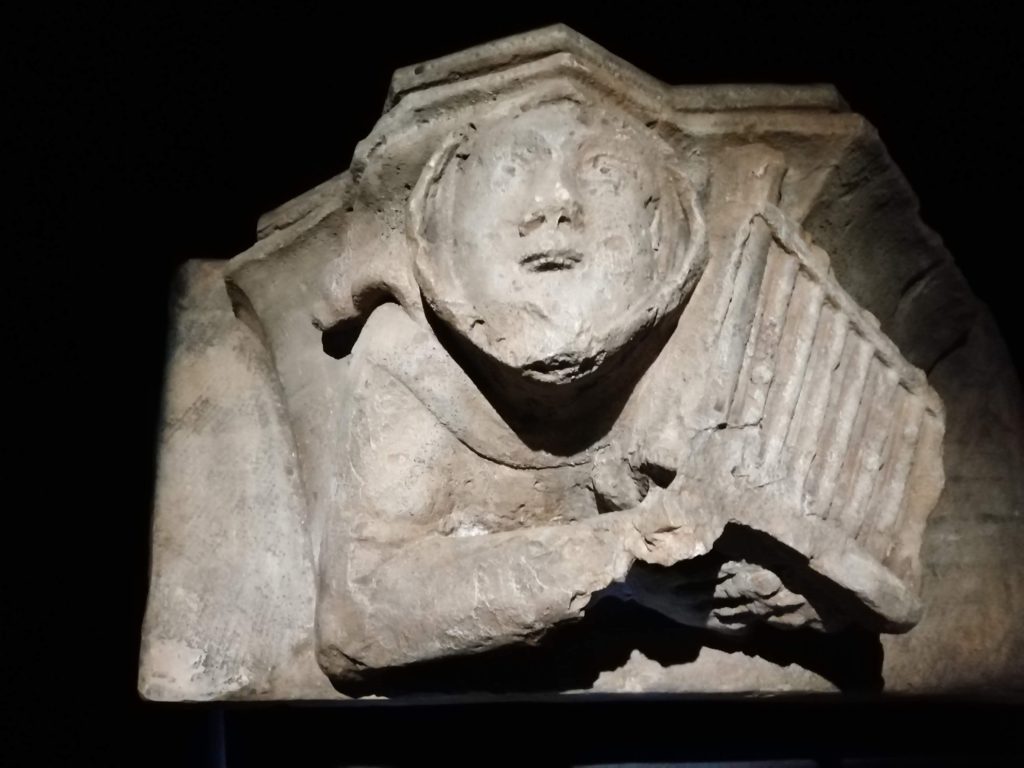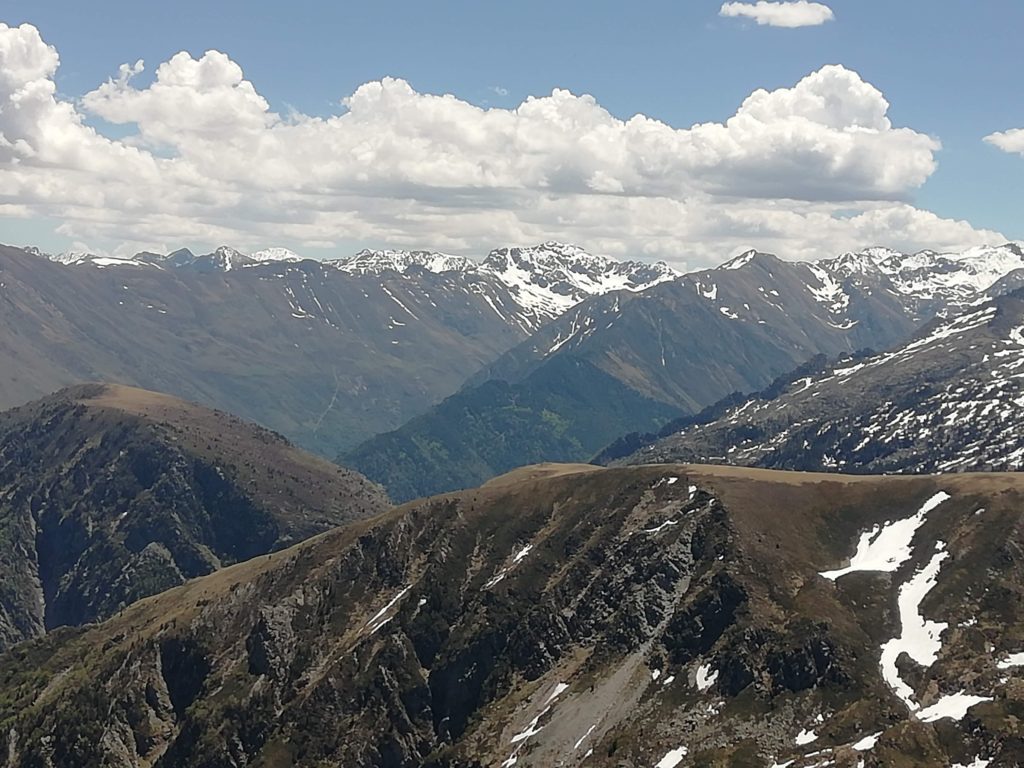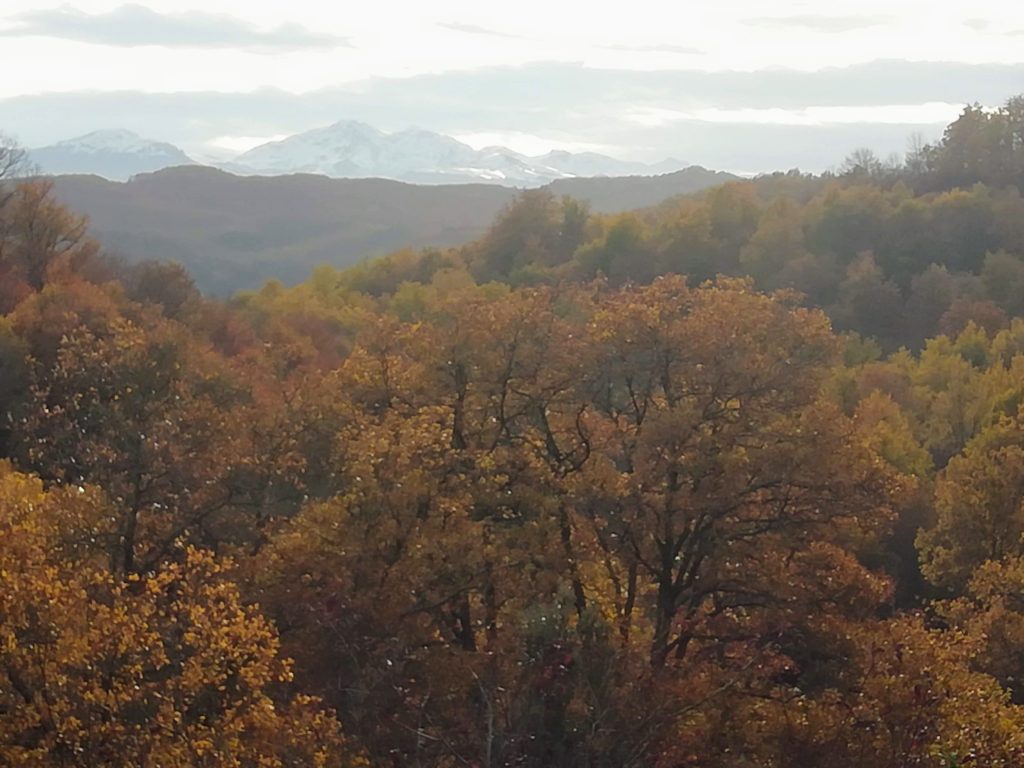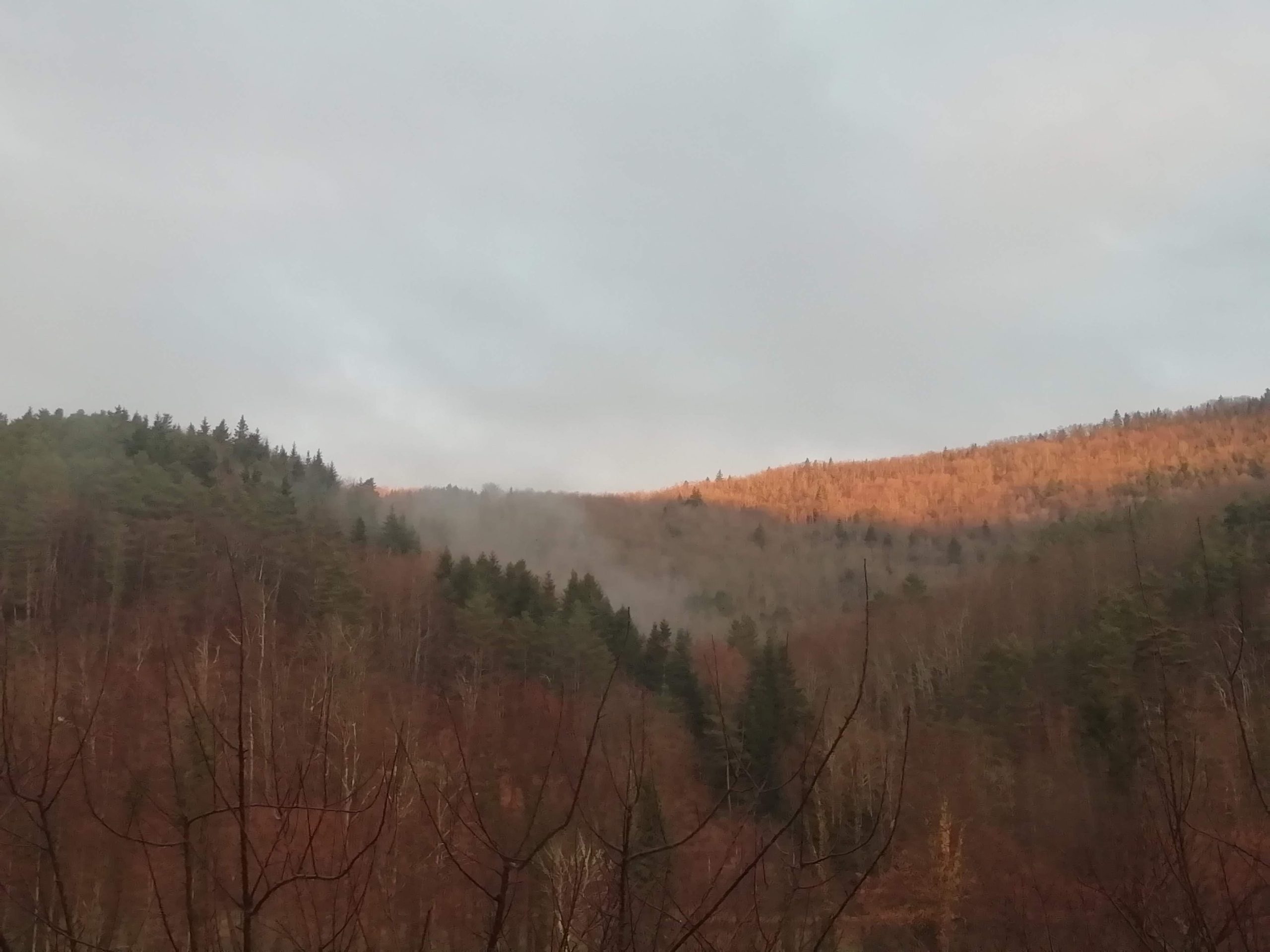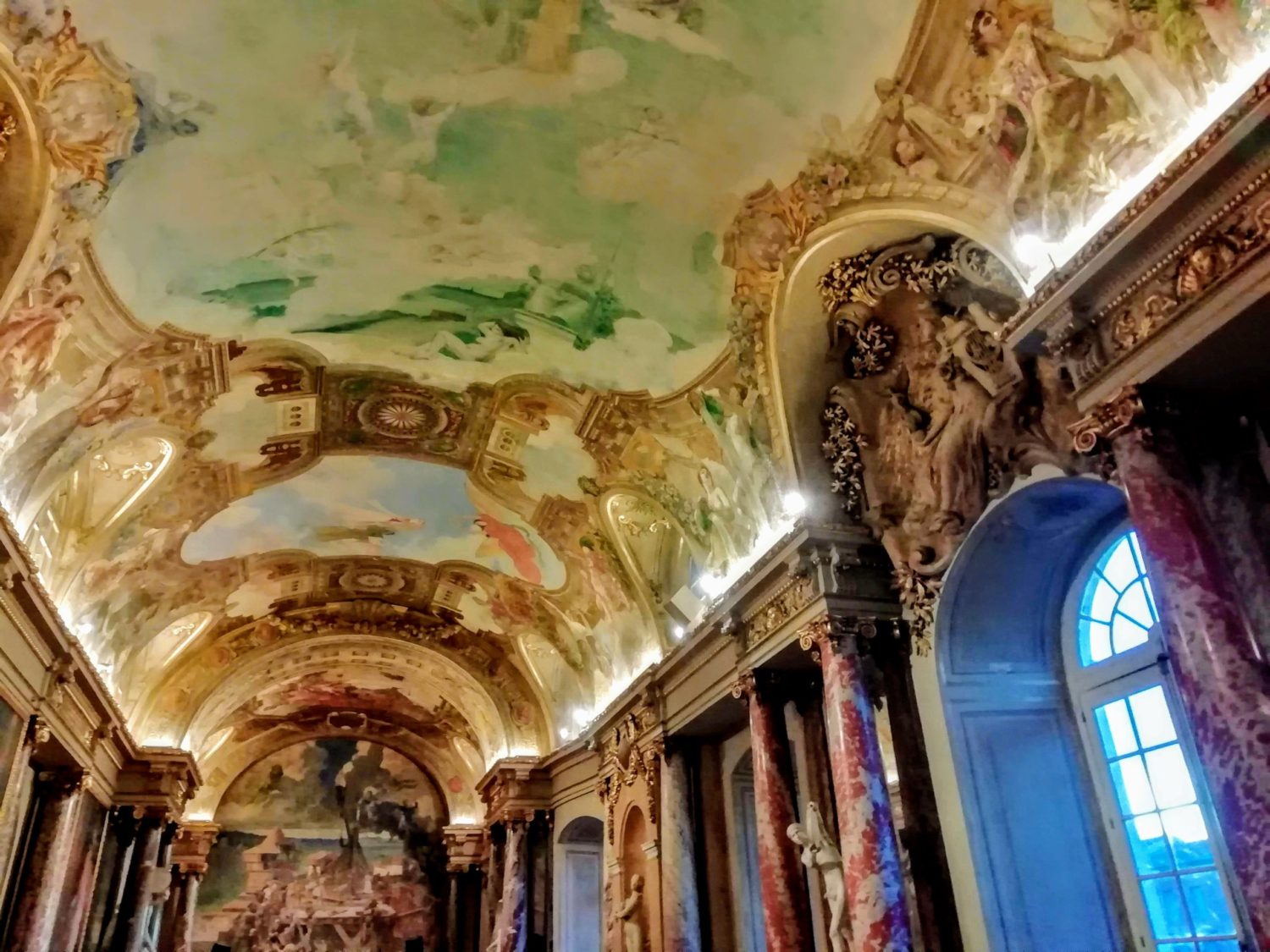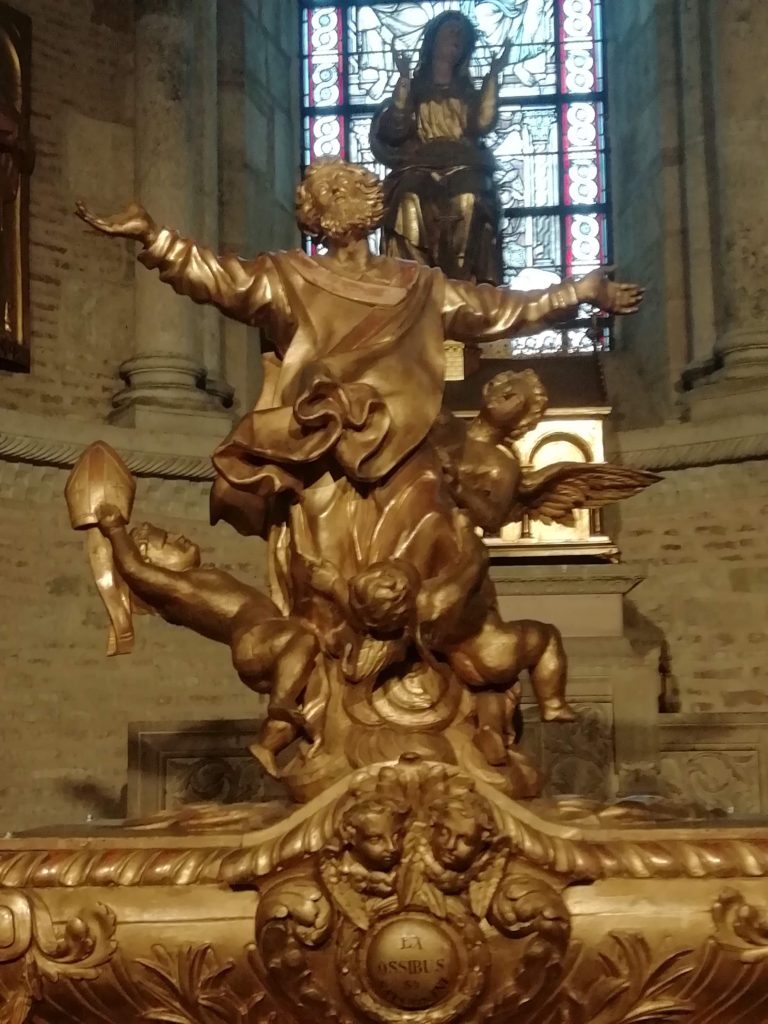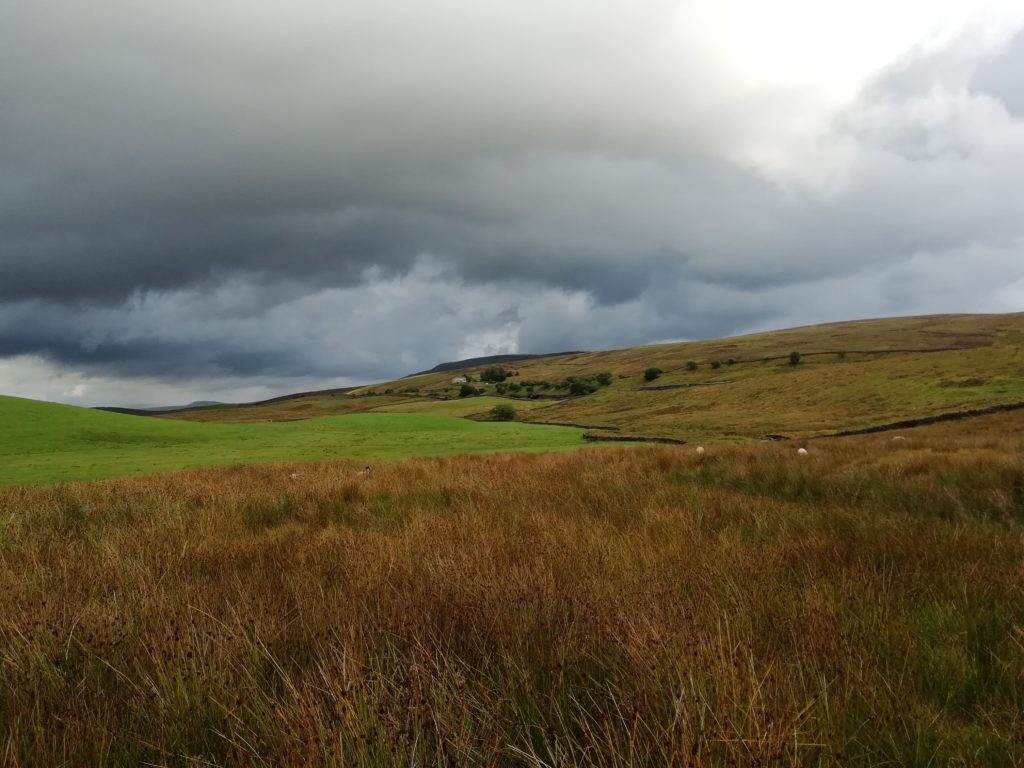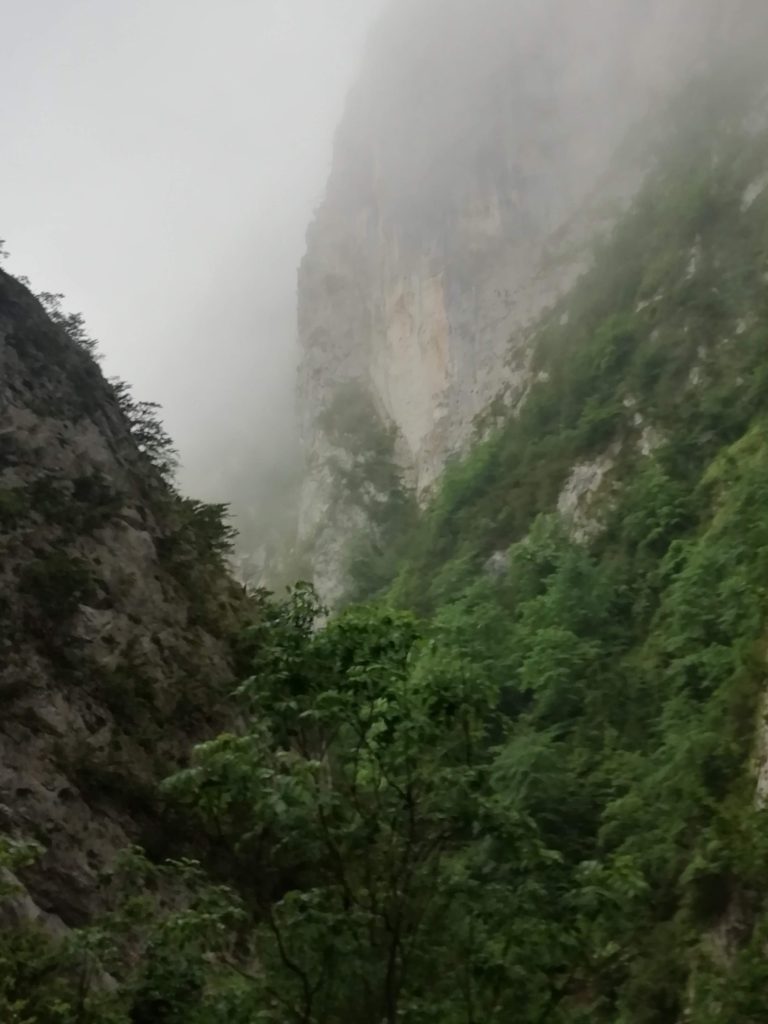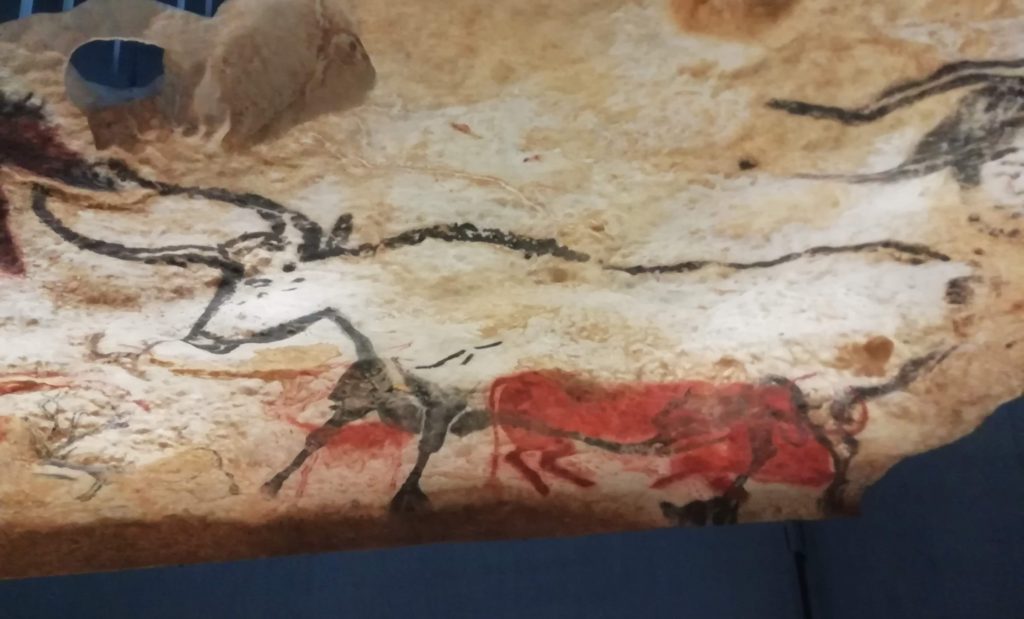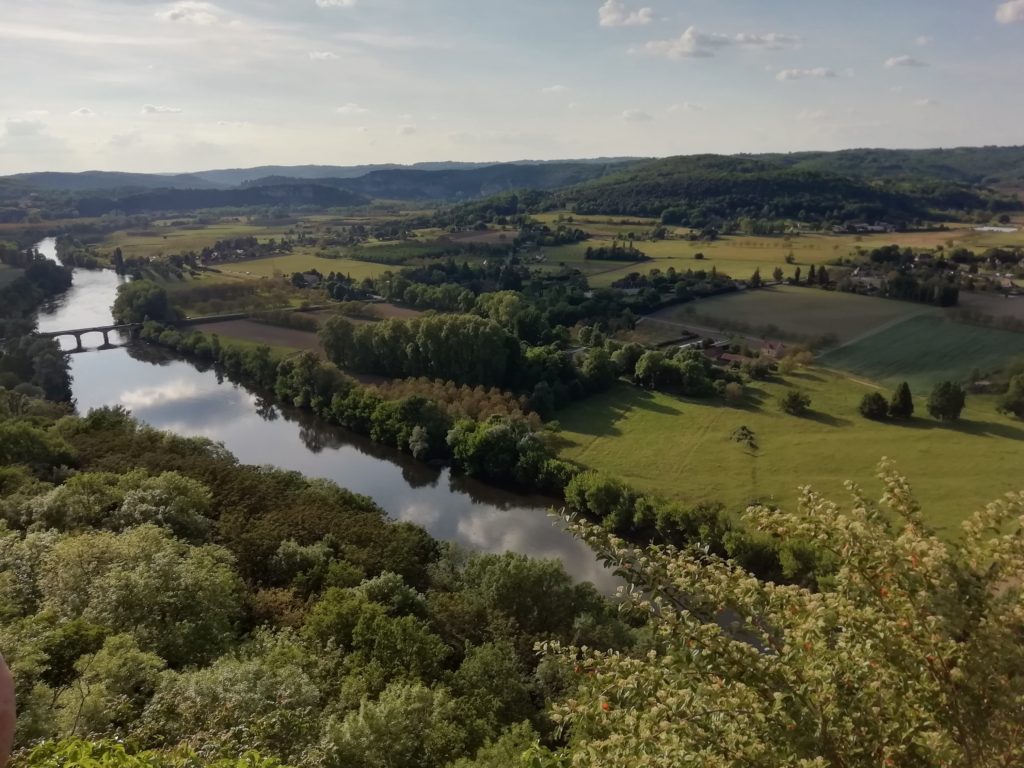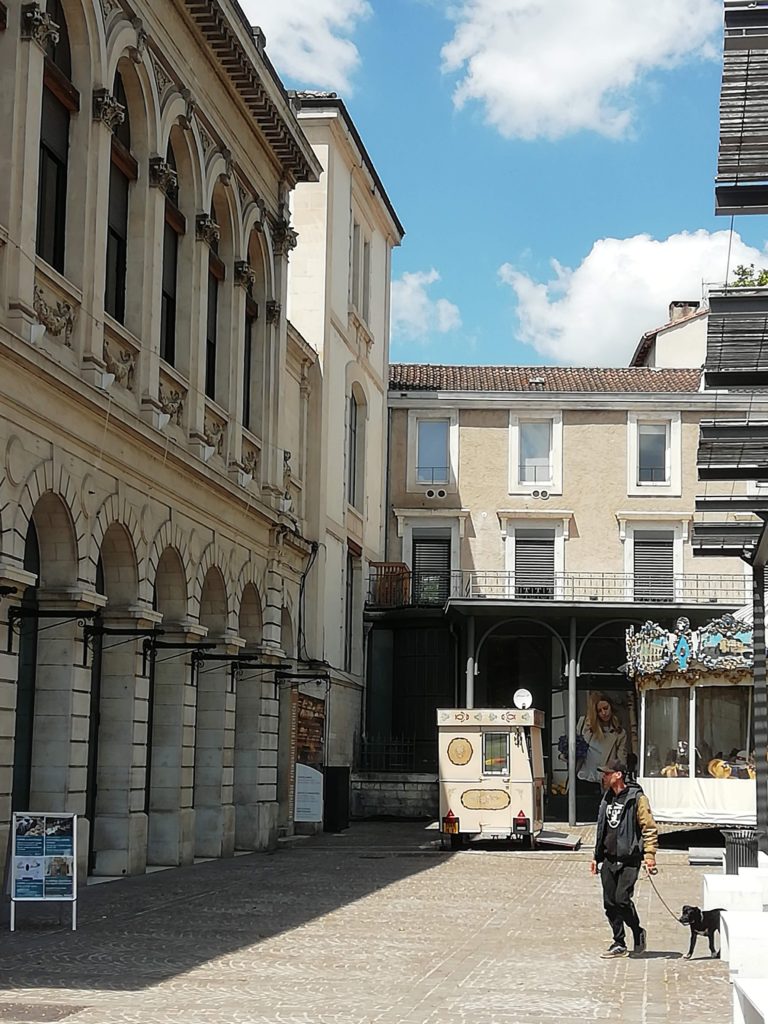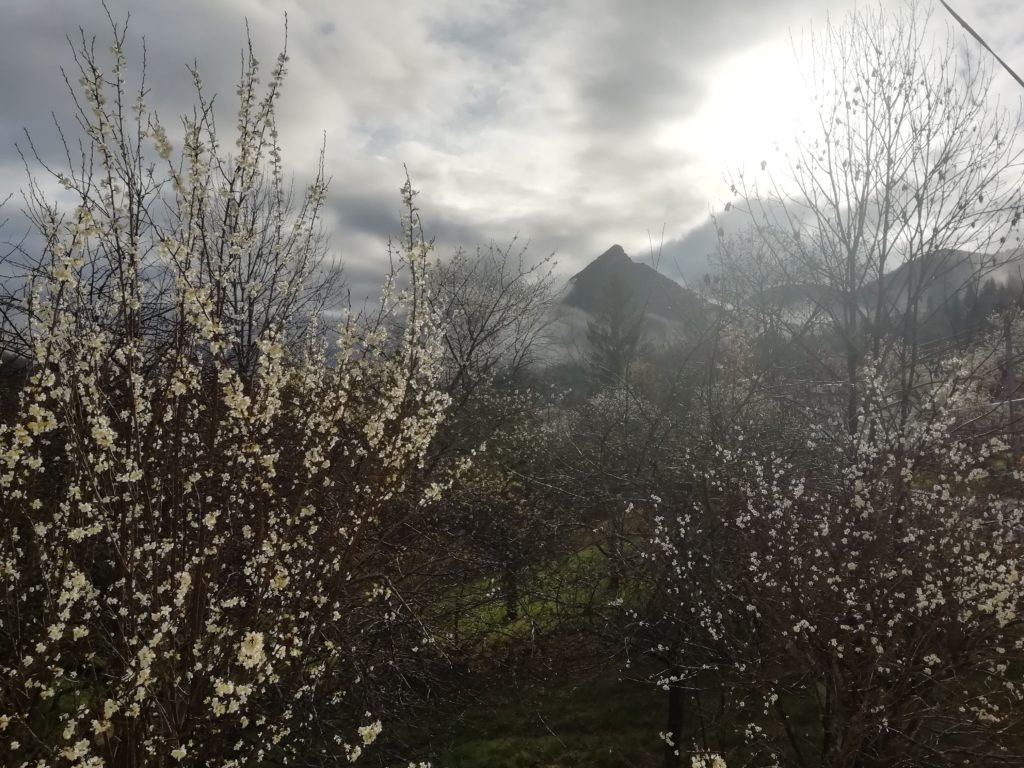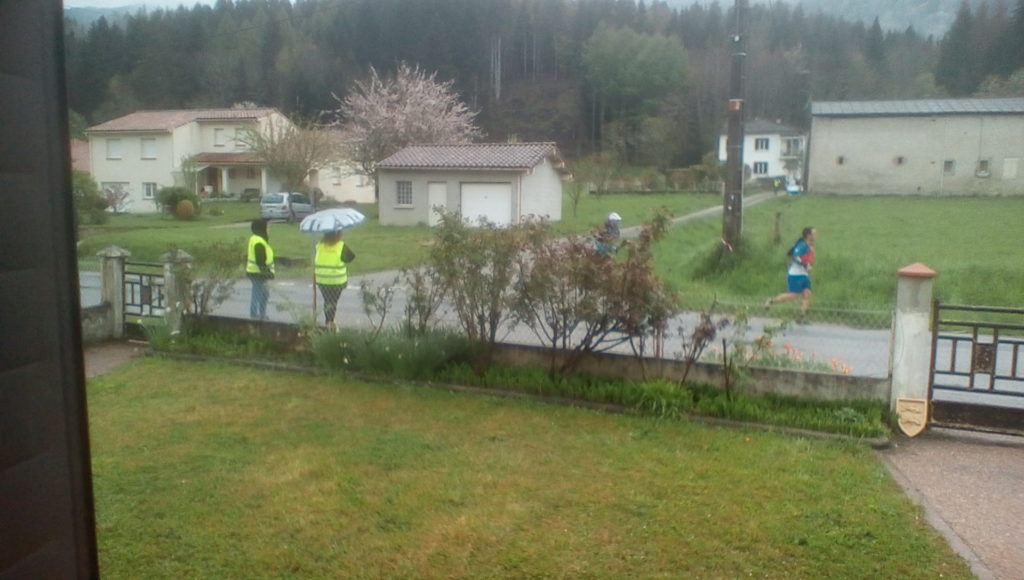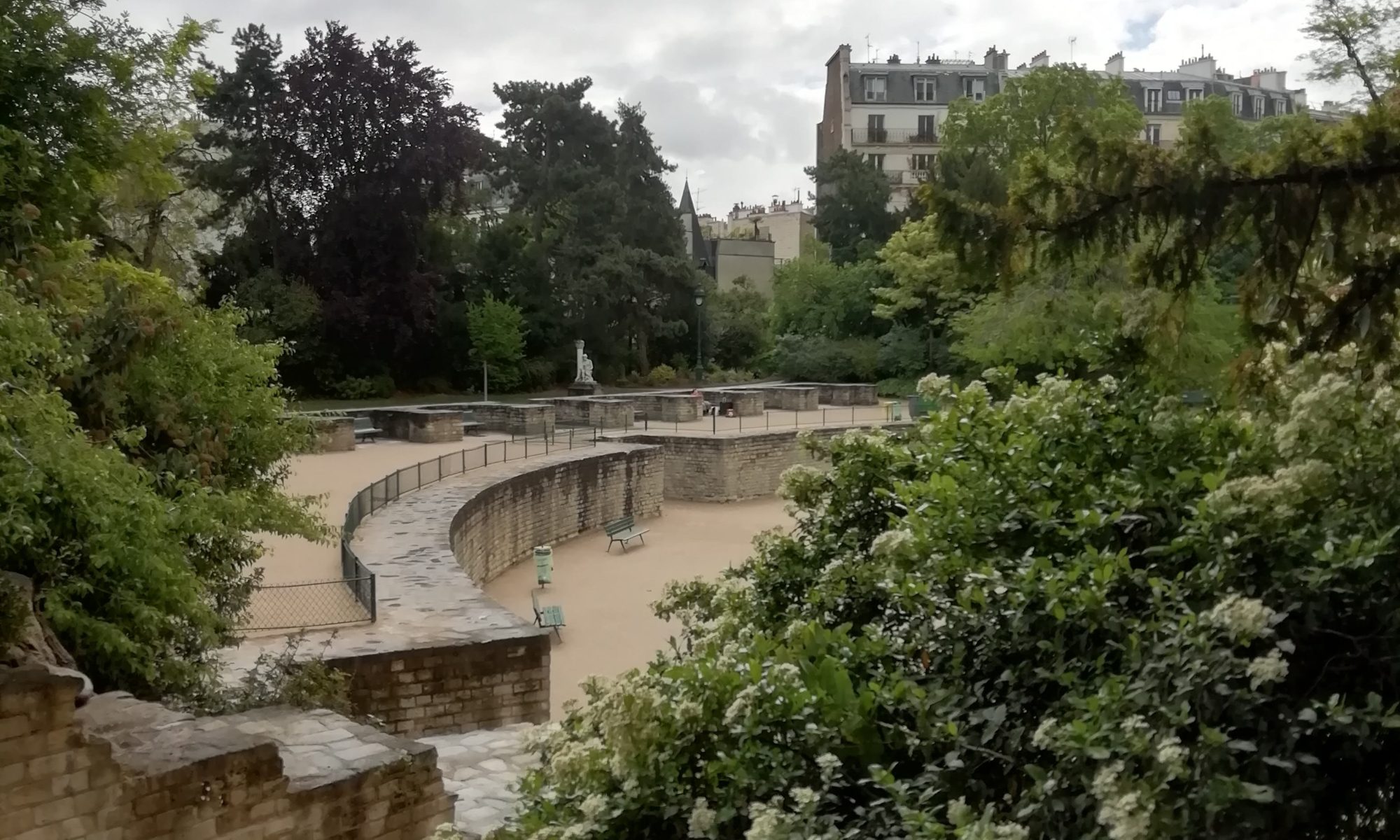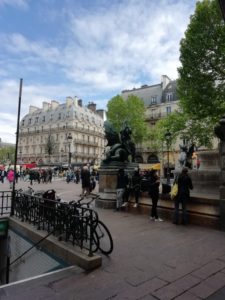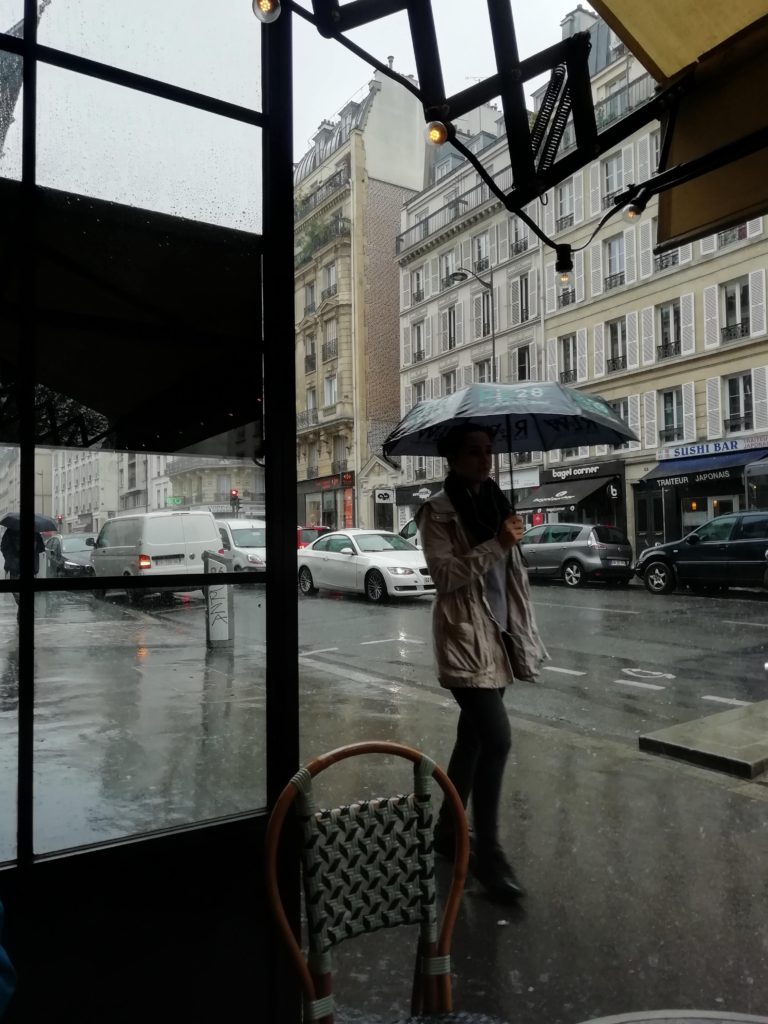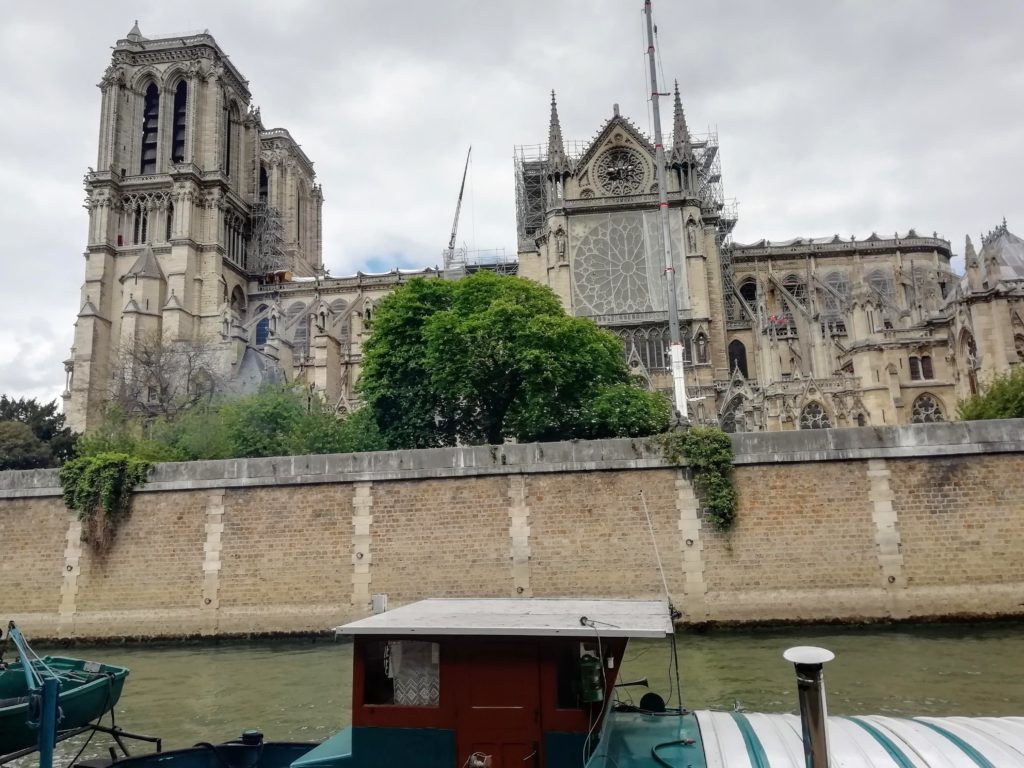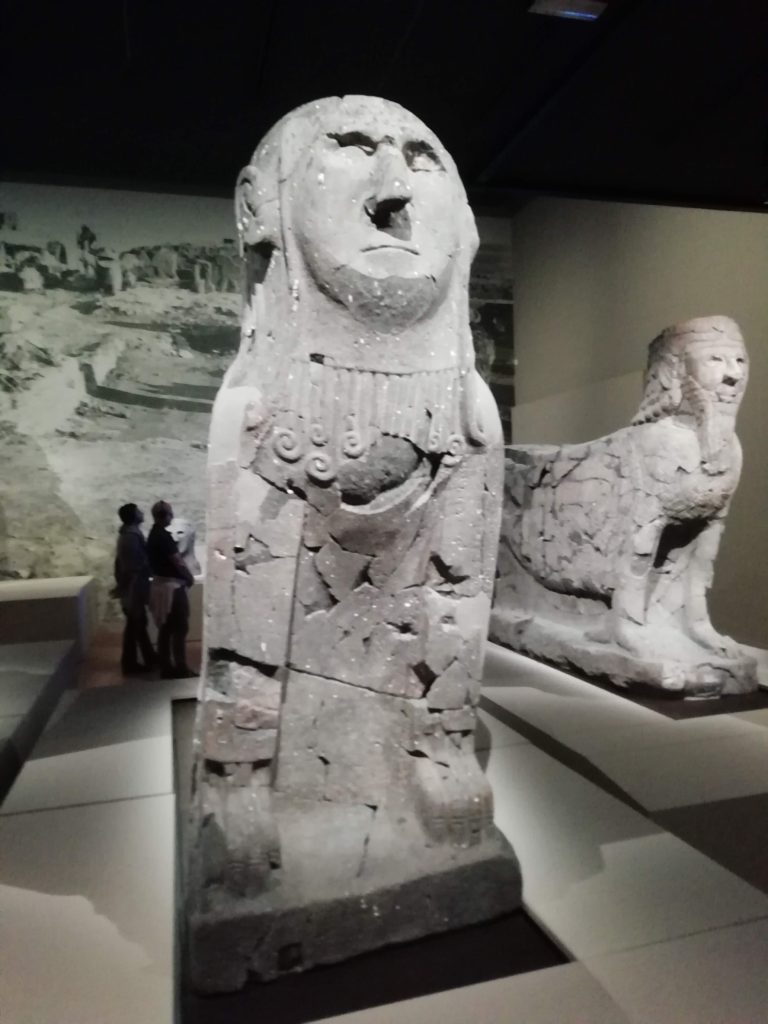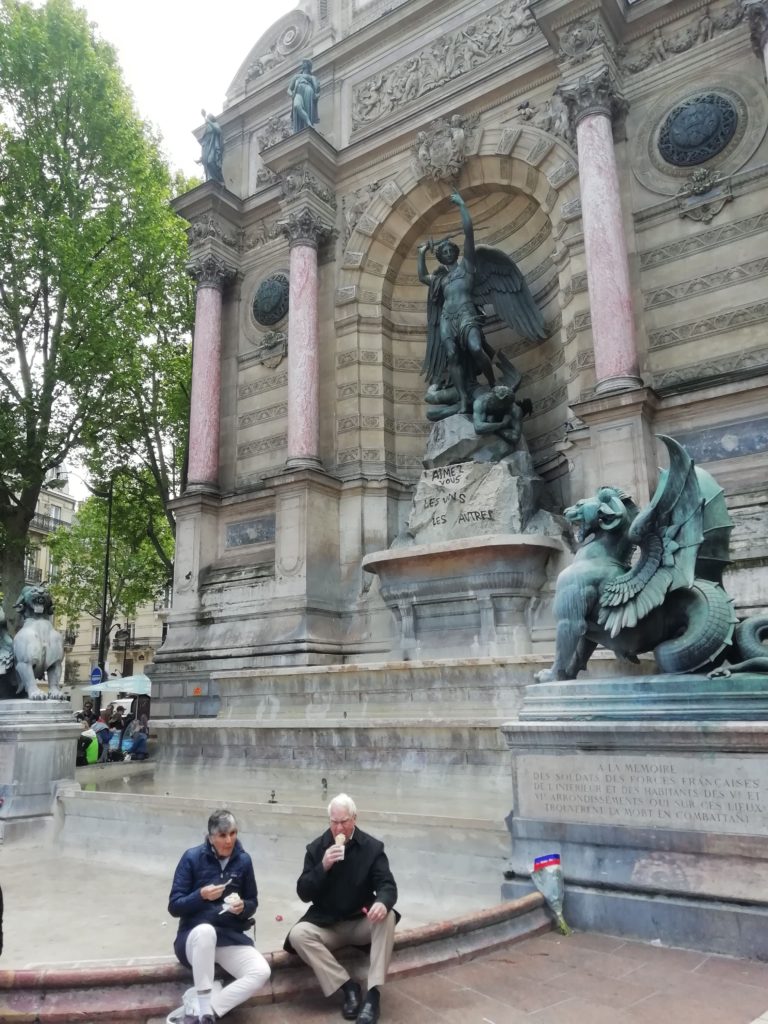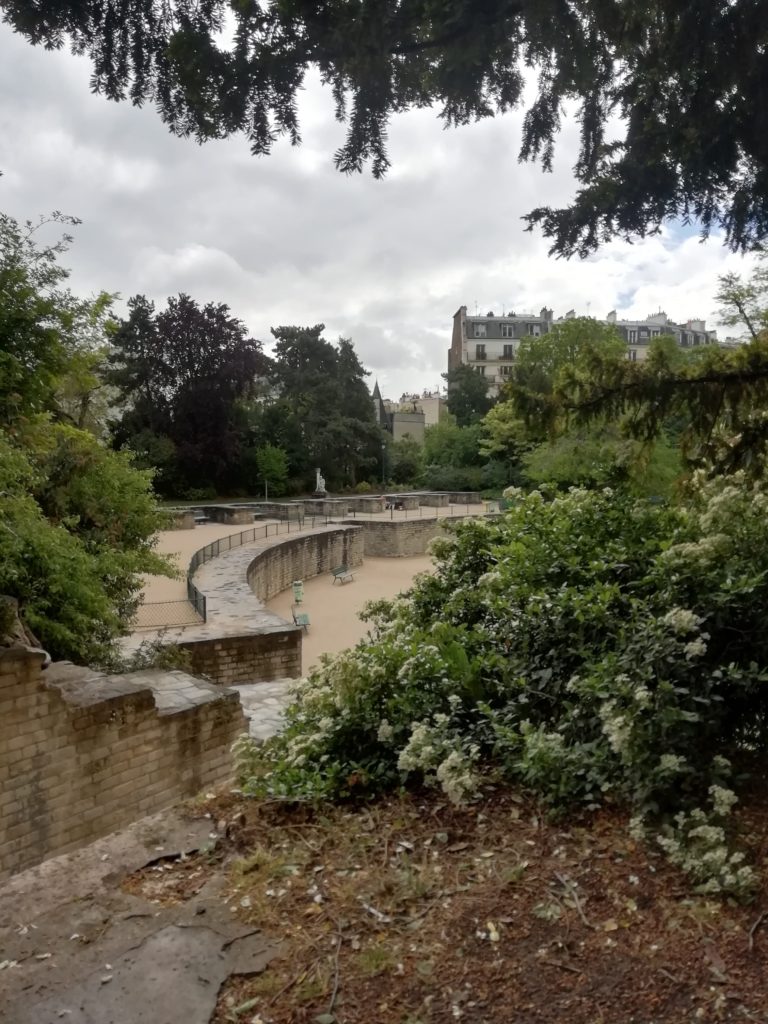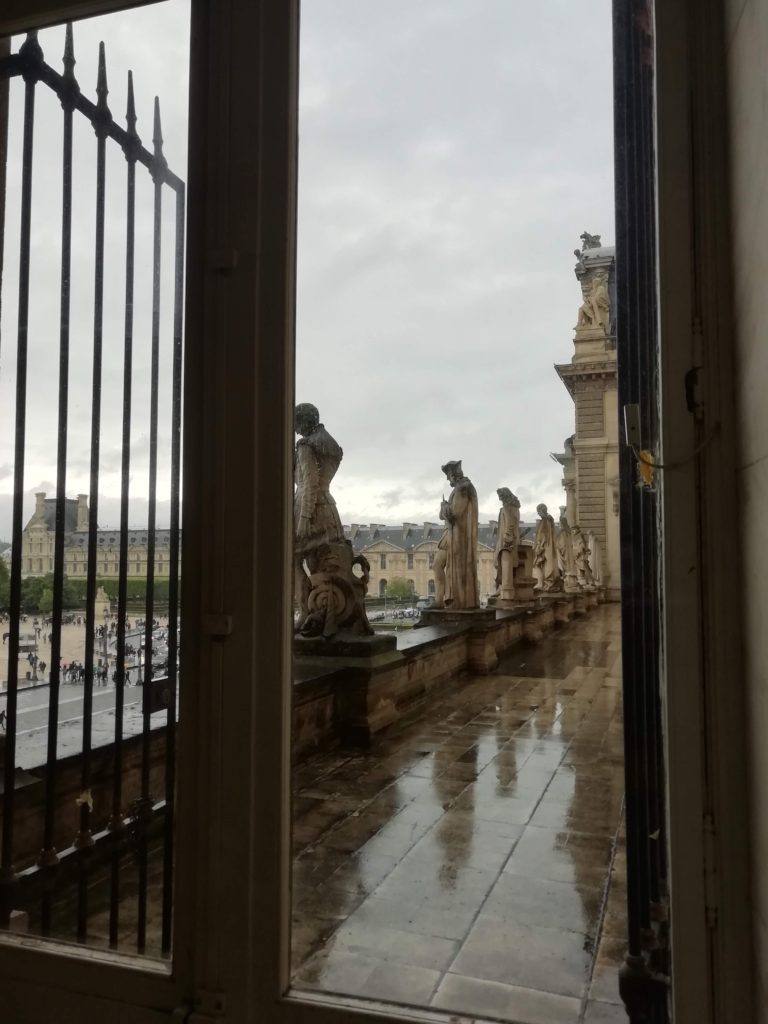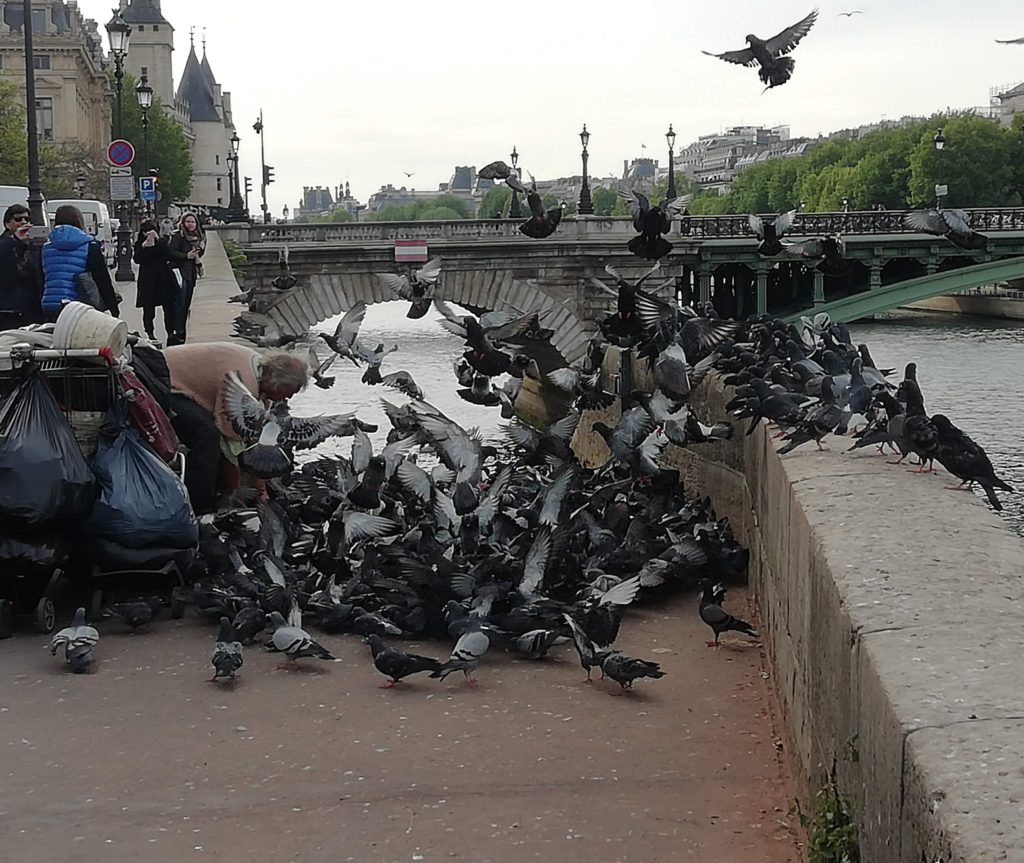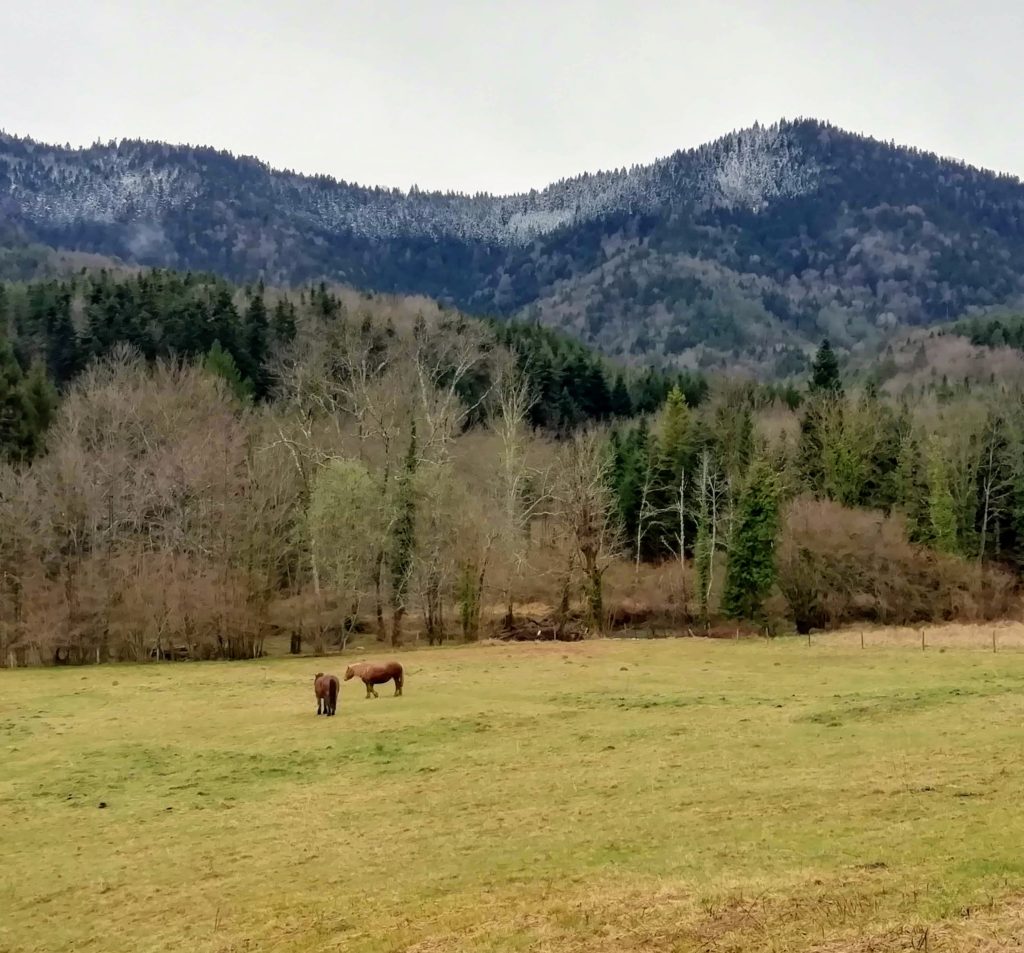
Jean is a man in our village. Tall, with wide shoulders, a broad chest and a belly that knows a balance of both good food and a life of walking and tending to his horses, he lives with his wife in the house right next to the one remaining sawmill. He strides with long legs. He has a bushy white beard and long white hair that forms an aurora around his clear and open face, ageing in skin only since his eyes are bright and alive.
He is an anomaly in this village of smaller, quieter people. It is said he is not well-liked by the other old-timers. Who knows. He is part of the as-yet impenetrable French community around me that I will never really be a part of, though many may open themselves to me along our way. We met Jean in the fall when a portal into his life opened in front of us. But I will tell you that story later. First I will tell you about this morning.
Walter has been heavily pruning the old apple and plum trees in the small orchard on the strip of land next to us that we bought last summer. This strip is, in turn, next to the land owned by Jean. All these pieces of land run down to the little river that flows through the village. There are a few old apple trees on his strip and grazing land for his horses.
Walter and our friend David had just been spending several days with David’s chainsaw and Walter’s expertise as an orchard pruner, opening up the ancient trees, giving them another life. They looked as odd and wounded as the pollarded Plane trees lining the village streets did last spring when the town crews went to work on them. It is a radical method employed for hundreds of years to revive old trees and give them more years to leaf and to florish. Walter’s long experience pruning had shown him the results of his work. He was looking forward to the flush of apples in two years time.
Everyone from the village passes by our place to get to the outside world. The trees of the orchard are a well-known sight. As with much in this area, tucked into the foothills, such a place seen so frequently, so familiar to the villagers, carries the emotions of more than just those who own it on paper. The apples of two of the trees are famous to the locals in the village for their flavor. They were the trees planted by the grandfather of a woman just the other side of the bridge whose family has lived here for generations.
The old inhabitants have their own way of pruning. Neglect of the trees is not necessarily considered a bad thing. They provide apples anyway till they begin to die, more than what is considered enough. Pruning, when still done, is an act of allowing the branches of the trees to lean down and put the fruit in your hand rather than a way to open the tree to the light.
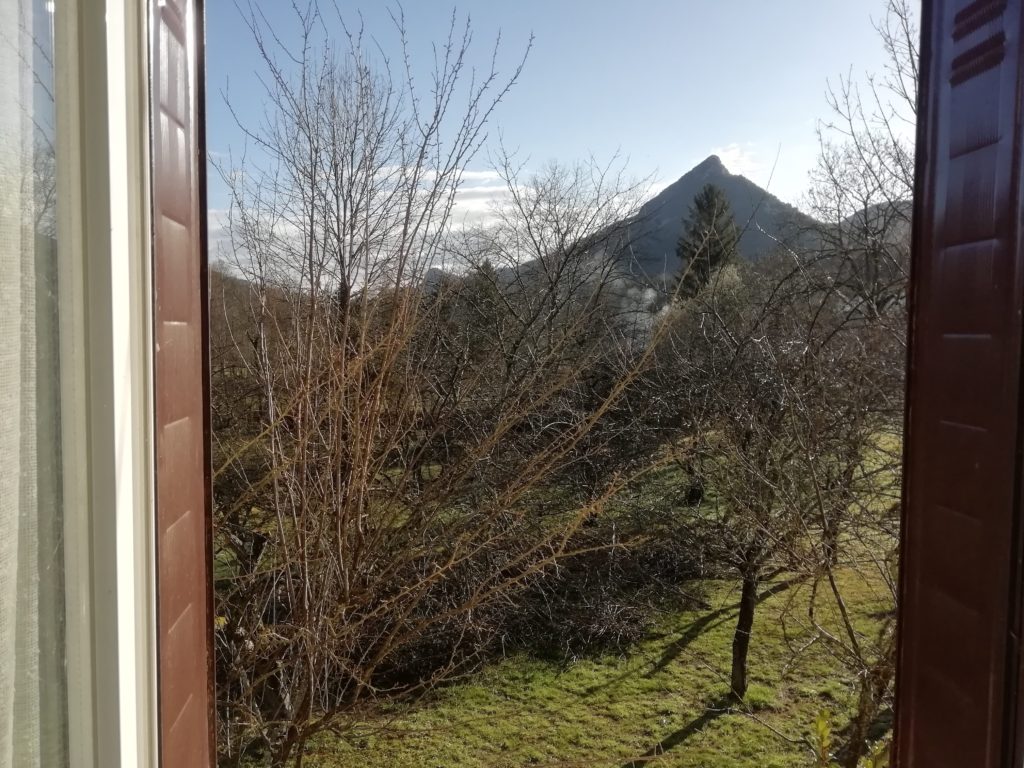
As I sat at my desk on this early Saturday morning, writing and reading, I watched as Jean, returning from an early morning hike, perhaps a visit to his horses in a field at some distance, staff in hand and small pack on his back, stopped for many long moments to look at the apple trees, so starkly different from a week ago. I was ideally positioned to watch his face, the dim light of the room and the partially opened shutters shielding him from the magnetic pull of a focused pair of eyes. I indulged my curiosity.
He looked into the trees as they parade down the soft slope, studying the whole scene. He too was curious. Even as I sat, trying to plumb his thoughts, no judgement seemed to appear. There was nothing in the line of his mouth, the direction of his eyes, the plane of his forehead that expressed either approval or accusation. He stepped forward as if to see some detail more closely, noting the last of the pile of dirt that the village workers had dumped on our land for Walter’s use in the garden. He stepped back into the road, looked ahead and then back for one more long look at the trees before walking on more slowly down the road towards his house in the center of the village.
In those moments, unseen, I had picked up the subtle transmissions from inside another organism. His thoughts, though well protected, the same in any language, transmitted a color, a flavor, a texture from the subtle energy of his mind, his emotion. Some receptors in me had awakened to listen, to see.
Still in my nightgown, I suppressed an urge to run down the stairs and out the front door to talk with him, to ask him what he thought of what he had seen, why he had stopped. I wondered if he had been thinking about how he, too, could give his trees another life. Or perhaps he looked at this cut and that, analyzing what he would have done differently. Or perhaps he was recalling a conversation with the last owner of the house years ago about the pruning of the trees. He would have been speaking, then, with a man respected and loved in the village, a man who would have been his senior by many years. Perhaps he was comparing that advice with what he saw of the work of this American, surely an upstart and a radical. The energy that had passed from one human to another was not really about the content of the thoughts, but some other more subtle quality. Whatever passed through the obvious concentration of his mind, it occurred to me it was likely colored by the empathy of a bond made months ago.
It was at the height of summer, just as a second heatwave was due to hit and just before a long holiday weekend. Four horses appeared in the field next to our land.
They were the beautiful horses I’d admired in another field on the opposite side of the river during our first summer in the village. Three were large-chested and heavy, as you would imagine a destrier to have been, carrying a knight in full armour into battle. These were a chestnut brown, each with a white blaze down its long nose, with blond manes, blond tales, and blond feathering above their heavy hoofs. The fourth was smaller and black, more agile-looking and lively.
The next afternoon we were working in the garden when we noticed that one of the biggest chestnuts horses had been lying on the ground for a long while. Walter mentioned it as we sat outside having a break from garden work. It was unusual for a horse, he said, to spend so much time on the ground. As we watched, it seemed she was having trouble lifting her head from the grass.
“It’s an old mare. She’s really ill,” he said.
I hope the owner is doing something about it. It wouldn’t be good for her to just die there.”
Soon, the man with long white hair and a white beard we had seen driving past from deeper in the village arrived in his familiar turquoise van. Clearly the owner of the horses, he opened the gate and petted each one in turn before quietly approaching the big chestnut on the ground. He knelt beside her, clearly stiff himself, and spoke to her softly. She tried again to lift herself on her knees, but, failing, let her head drop again into the grass.
After a few moments, the man stood and turned to walk back to the van. Thinking he might be leaving, I went to call to him over the fence. “Elle est malade?” I enquired. “Oui,” he said “elle a tourne un pate (she twisted a foot)”
I was so sorry to hear that. “Desolee!” I said, in empathy with them both. I wondered aloud if there were anything we could do to help.
“Non. Merci.” he said, smiling slightly. He thought, he said, that he would try to help her up as the vet had suggested. It would take pressure off her big chest.
“If they lie too long when they’re in pain, they may never be able to rise. “
I went back to join Walter with the weeding, noting that Walter’s attention, as he hoed, was both on the weeds and on what was unfolding in the next field.
Soon the man, carrying what looked to be a length of heavy rope, was heading back to the downed mare. Kneeling for long moments beside her, he seemed to be wrapping one end around her front leg, close to the belly. He stood, grabbing the rope, and walked back several paces before he leaned back and pulled with all his strength, moving her top leg over toward the ground so her body would follow.
She moved a bit as her leg came down towards the ground, dramatic in her heaving enormity. Almost, almost, but not quite.
Walter, a man of action, propped his hoe against a post where he was working and quickly began striding over to the road where he could go around the electric fencing. “Come over to the fence!” he called to me as he walked away.
Rounding the fence and going down through the trees, he approached the spot where Jean stood near the mare, considering his next move. I watched as Walter said the obligatory “Bonjour” and shook hands. He then motioned that he would help turn the horse. The first effort had come close. It just needed a bit more weight.
Understanding immediately, Jean smiled as he took up the rope again. They worked together with a mixture of English and French, knowing the necessary motions without speech.
Walter took hold of the rope behind Jean. I watched as, with two, the task became possible. They pulled together and over came the leg, followed inevitably by the enormous weight of her huge body. Walter stood back, deferentially, watching to make sure she had settled.
Jean helped her arrange her legs more comfortably. Then, kneeling by her head, he stroked her neck and spoke to her quietly. After a long moment, he pushed himself up and, looking like a biblical giant, walked towards Walter, aextending his big hand. Walter, a big man himself, took it in his. They shook hands firmly, both, as I could see, with large black patches of sweat spreading on their shirts.
I walked to the end of the fence to meet them and translated Jean’s thank you’s to Walter, who, as he does, nodded them off and, looking briefly at Jean, said
“Good! Of course. I’m glad we could do it! It just took two,”
and motioned that he was going back to work in the garden. They shook hands again in good-bye. I lingered to talk to Jean for a moment.
The vet would be coming in a little while, he said, and he would wait to meet her. They would decide together what was possible. With emotion evident in every part of his face and in the stoop of his shoulders, impossible to hide even in front of a stranger, wanting to talk, he explained that the other two large brown horses were the huge mare’s children, all of them Comtois, an old French breed of draft horse.
He had bought her as a yearling, he said, some thirty two years ago. They were family. He had never ridden or worked them, just cared for them. The fourth horse was a Merens, a breed of the Ariege, hearty and small. He had come later, rescued from a friend. He spent time with them every day.
I went back to the garden. Walter, having grown up around horses and cows, was clear the old horse would never stand again. It was not good to let her suffer, he said. He wondered if Jean had yet accepted that fact and planned for it. In the heat, the body would not do well. I nodded. The heat was extreme and it was predicted to get even hotter over the weekend to come.
Later in the day, the vet came. We watched briefly as they talked, gathering our tools at the end of the day. The next morning, the horse was still there, a mound under the tree now completely covered with a blue tarp. And Jean was there, clothes looking rumpled, an arm around the neck of one of her children. She had died in the night, whether helped by the vet or on her own.
After breakfast, I went out to the fence and waved hello. Jean walked over and said bonjour.
“ We gave her an injection last night,” he said.
“She was suffering too much.”
Tears came to his eyes.
“I’m so sorry,” I said. “She was so much a part of your life. “
For a short moment, he didn’t turn away. Somehow, with some sense of what was at hand, he was allowing this stranger whose partner had known, without asking, what to do to help, allowing this woman from another place, to see the pain, the depth of it in his eyes.
When he turned, it was to look at the mound of her and say,
“I’ve wetted her down to keep her cooler. I hope the men will get here before the weekend with the truck.”
The practicalities.
Small moments. The distance from one human to another is as great as the infinite distances of the universe.
Yet when we are truly distant from each other in our own space, our own time, this sense transforms. Every day of our habitual lives, we pass alongside each other, touching, contaminating, exchanging hosts of molecules here and there in our attempts to see ourselves in another, to question the isolation of the flesh.
Yet, in flashes, there it is. The truth of our condition. There is no inside and no outside. We are all in that same infinity–exploring.
Remember this.
